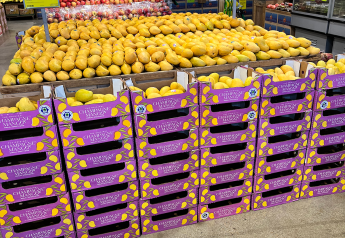Inflation smacks consumers: now what?

Other than the federal government raising interest rates a fraction, what can be done about inflation?
What will inflation mean for fresh produce demand, and how will retailers and marketers react?
The Packer's columnist Armand Lobato speaks to the question in a column called "Generics: Will history repeat itself?"
Armand starts his column this way:
"As a young produce clerk at the time, I recall people being plenty nervous: unsteady world events arising, namely Middle East tensions; fuel prices doubling overnight, then doubling again, pushing up the price of everything, especially food.
That’s when grocers came up with an unusual approach: the introduction of generic."
As Armand points out, the generic grocery trend eventually fizzled out.
What about 2022, the here and now? Most importantly, how are consumers responding to inflation?
I asked the Fresh Produce Industry Discussion Group this question:
A few comments on the question:
From California: "Hypersensitivity to price but ... eroding price-reality awareness." One of the really clueless things I've been hearing is consumers see higher prices and will trade down to cheaper stores/private label/substitute cheaper items etc. etc. When everything [costs] more, it’s really hard to determine what is cheap and what is expensive. I mean, the burger, fries and drink aren't $4.99 anymore, but is the right price $6.99, $8.99 or $9.99? The average residential kilowatt increased almost 12% in a year, and my bill is more expensive, but are we using less electricity in the house? (Someone must pay for all those green energy subsidies.) Are you driving less than six months ago? I don't know, all the expensive produce items — packaged salads, salad kits, avocados, berries, organics — seem to be doing fine? Should we bet on the cheap stuff? Conventional potatoes, onions, carrots, cabbage, iceberg lettuce, bananas, old variety apples and navel oranges?"
From Mexico: "Increase of all the products around the world is the consequence of the lack of containers, due to inefficient storage movements of all the factories around the world due to the change in supply chains due to COVID. And energy now increasing because of war. Governments fighting a stupid war instead of solving the containers situation.
From Australia: "Sadly, I see a lot of customers cutting down on food, possibly heading to cheaper fruit shops, etc. A proportion of people are beginning to grow their own."
In the latest retail update from Anne-Marie Roerink, president of 210 Analytics, she said the U.S. consumer price index increased 7.9% for the 12 months ending February 2022, the biggest 12-month increase since 1981.
For the latest 52 weeks ending Feb. 27, grocery prices increased 6%. In February 2022, the price per pound for total fresh produce increased by 10.9% over February 2021, according to retail data.
An IRI shopper survey revealed nearly all (96%) of consumers are concerned about inflation. Jonna Parker, team lead for IRI, said in a news release that 75% of consumers have already made one or more changes to their grocery shopping. That is up from 64% who indicated the same in January 2022.
Additionally, consumers are pulling back on restaurant visits to save money, Parker said in the release. Consumers estimated that 82% of their meals in a typical week were prepared at home in February. Consumers may buy less fresh produce at the store and spread their spending across canned, frozen and fresh purchases.
Inflation will cause “fixed income” consumers — nearly all of us — to cut back in some form or fashion. Will that mean cutting back on trips to the grocery store, going out less often to restaurants or just picking up less fresh produce in the supermarket? Probably all of those.
Here’s hoping the Russia-Ukraine war doesn’t have an extended influence on energy prices. If we are stuck paying $5 per gallon for gas indefinitely, there could be hard times ahead. It will be the bleak version of trickle-down economics; first consumers, and then produce marketers and retailers.







